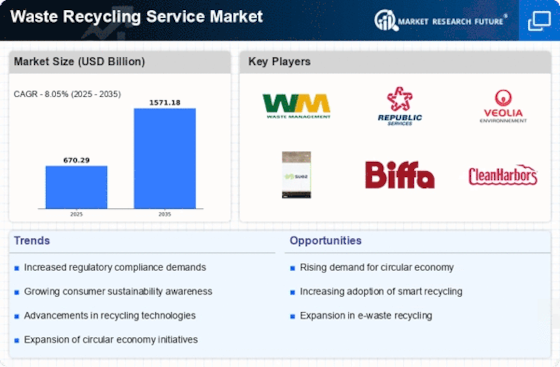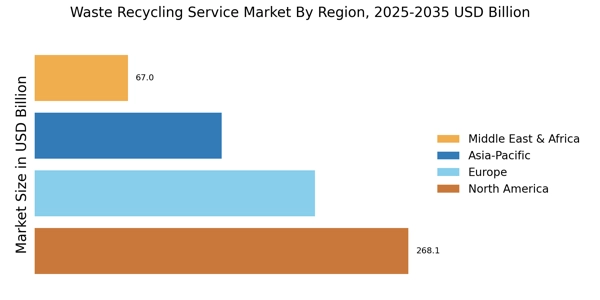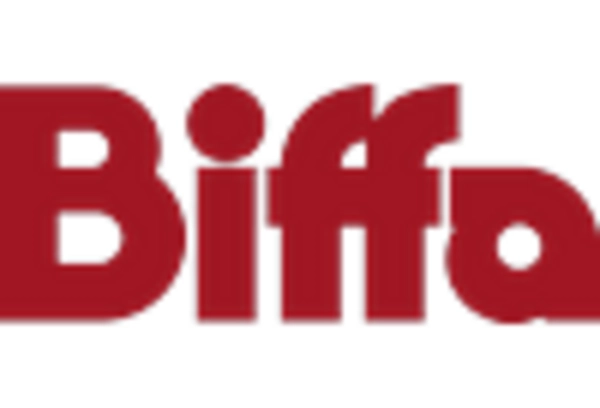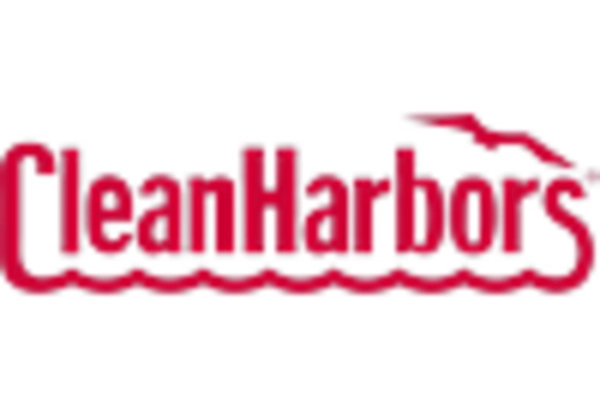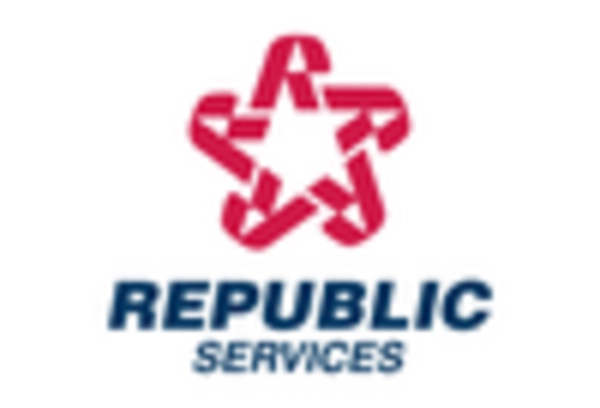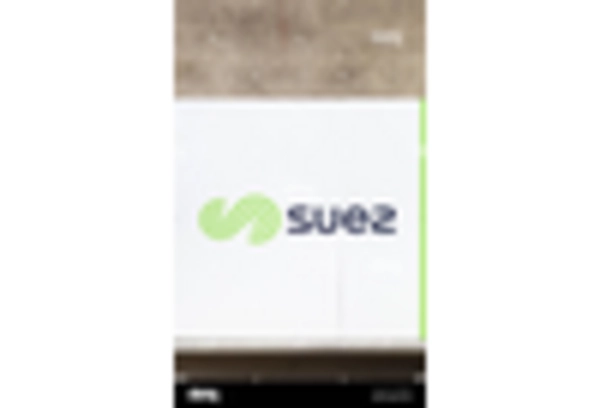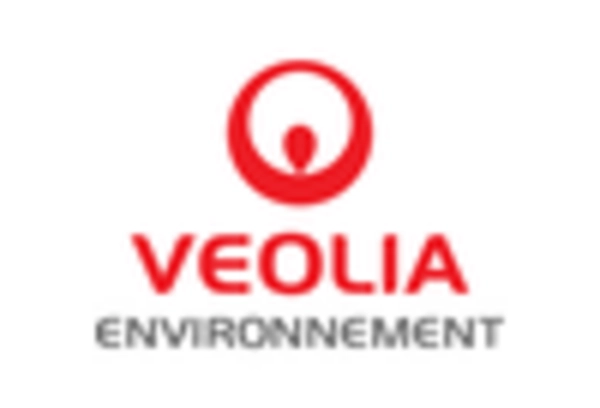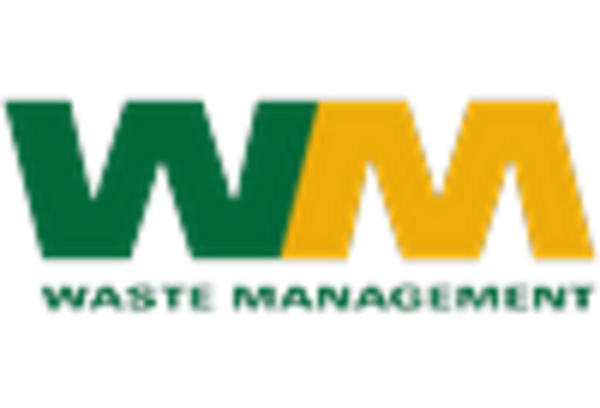Increasing Regulatory Pressures
Regulatory frameworks are becoming increasingly stringent, compelling businesses to adopt sustainable practices. The Waste Recycling Service Market is influenced by policies aimed at reducing landfill waste and promoting recycling. Governments are implementing mandates that require higher recycling rates and the use of recycled materials in manufacturing. For example, some regions have set ambitious targets to achieve 50% recycling rates by 2030. These regulations not only create a compliance burden but also present opportunities for growth within the Waste Recycling Service Market. Companies that proactively adapt to these regulations can gain a competitive edge, as they are better positioned to meet the demands of both regulators and environmentally conscious consumers.
Economic Incentives for Recycling
Economic factors play a crucial role in shaping the Waste Recycling Service Market. Many governments are introducing financial incentives to encourage recycling and waste reduction. These incentives may include tax breaks, grants, or subsidies for companies that implement effective recycling programs. Such measures not only alleviate the financial burden associated with waste management but also stimulate investment in recycling infrastructure. As a result, businesses are more inclined to engage in recycling initiatives, which contributes to the overall growth of the Waste Recycling Service Market. The potential for cost savings and increased profitability through recycling initiatives is likely to drive further participation in the market.
Corporate Sustainability Initiatives
Corporations are increasingly adopting sustainability initiatives as part of their business strategies. The Waste Recycling Service Market is witnessing a shift as companies recognize the importance of responsible waste management. Many organizations are setting ambitious sustainability goals, including zero waste to landfill targets. This commitment to sustainability often translates into increased investment in recycling programs and partnerships with waste management firms. As corporations strive to enhance their environmental credentials, the demand for effective waste recycling services is expected to rise. This trend not only benefits the Waste Recycling Service Market but also fosters a culture of sustainability within the corporate sector.
Rising Consumer Awareness and Demand
Consumer awareness regarding environmental issues is on the rise, leading to increased demand for sustainable practices. The Waste Recycling Service Market is benefiting from this shift in consumer behavior, as individuals and businesses alike seek to minimize their ecological footprint. Surveys indicate that a significant percentage of consumers are willing to pay a premium for products made from recycled materials. This trend is prompting manufacturers to incorporate recycled content into their products, thereby driving demand for recycling services. As consumers continue to prioritize sustainability, the Waste Recycling Service Market is likely to expand, with companies focusing on enhancing their recycling capabilities to meet this growing demand.
Technological Innovations in Waste Management
The Waste Recycling Service Market is experiencing a surge in technological innovations that enhance recycling processes. Advanced sorting technologies, such as AI-driven systems, are improving the efficiency of material recovery facilities. These innovations not only streamline operations but also increase the volume of recyclables processed. For instance, the integration of robotics in sorting lines has been shown to reduce contamination rates significantly, thereby improving the quality of recycled materials. Furthermore, the development of new recycling methods, such as chemical recycling, allows for the processing of previously non-recyclable plastics. This technological evolution is expected to drive growth in the Waste Recycling Service Market, as companies seek to adopt these advancements to remain competitive and meet rising environmental standards.


